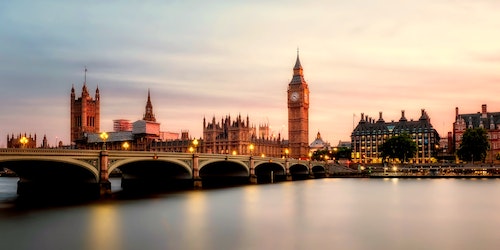Proposition to make all water firms openly recorded isn’t a fix everything except would compel them to be more straightforward to the astonishment of no one who follows the English and Welsh water area, the two organizations that have been hit with the heaviest punishments for missing execution focuses on this year are the standard suspects: Southern Water and Thames Water. The grimy pair last year needed to return £99m between them to clients after Ofwat’s yearly count of results in regions, for example, water supply interferences, contamination episodes and sewer flooding. This time the figure is £80m. The top finish of the association table, note, is likewise recognizable. Severn Trent and Joined Utilities beat focuses, as last year, and consequently get compensated by being permitted to recuperate more cash by means of bills (which might feel less remunerating according to the perspective of clients). Relationship doesn’t necessarily suggest causation, yet it merits inquiring: do different possession models help to make sense of the constant bay in functional exhibition?
Southern and Thames were two of the organizations that were stacked with obligation during the private-value drove takeover blast not long after the turn of the hundred years. Severn Trent and Joined got away from that destiny and are two of just three major water firms actually recorded on the securities exchange, where rounds of outrageous monetary designing are more earnestly to perform. Surely, Jonson Cox, who in June ventured down as seat of Ofwat, appeared to join the specks before a Masters select council last month. He lamented the old administrative mantra that said capital designs were for organizations to decide, and he attacked venture banks for the job in the takeover and high-influence binge of the 2000s.
To start with, it made “the inclination of reasoning of water organizations as monetary resources”, he contended. Furthermore, second, chances were made deviated: influence juices up value returns for proprietors when things work out positively, however the costs fall on clients when they don’t. It was anything but a shock, said Cox, that three of the most profoundly utilized structures ran into challenges. “I lament there aren’t all the more openly recorded organizations since it gives genuine perceivability,” he said. Ofwat should likewise be faulted for general meekness, obviously. The business’ supplanting of value with obligation, and extraction of profits, occurred under the nose of controllers. In the Masters meeting, Cox complimented himself and Ofwat for driving a difference in possession at Southern last year (however it is still in confidential hands) and a recapitalisation at Thames yet skirted the way that those changes happened just a short time after a smell was clear to everybody.
Be that as it may, he was likely on to something in turning the focus on possession structures. On that score, a captivating thought has been pitched by Jonathan Passage, podcaster (Quite a while in Money) and previous FT pioneer essayist: all the enormous privatized water organizations ought to be recorded on the London Stock Trade; and it ought to be a state of holding a permit that something like 25% of the offers are public. The proposition is clearly not a fix for deficiencies that have been 30 years really taking shape, however even fanatics of nationalization (who could mirror that occasionally, similar to now, an expense cutting government would be in control) ought to think about the benefits. Profoundly utilized designs would need to be destroyed on return to the financial exchange, consequently infusing capital and compelling administrations to contemplate running their organizations better. Proprietors could dissent, yet so what?
Furthermore, straightforwardness ought to improve, since it is more enthusiastically to stow away when you’re in the glare of a standard six-month to month revealing cycle and need to distribute monetary records that normal humans can comprehend. Exorbitant meeting room pay, as a matter of fact, probably won’t transform one scribble, yet that is another story. Some ideological group or other ought to take up the securities exchange thought. It’s noticeably flawed, however cited status forces a specific discipline and responsibility on sheets. Assuming that results are typically better as well, parliament ought to simply get it going.
Spare Us The Message, Vodafone
The old reasoning said four huge portable administrators was the base expected to guarantee contest in the UK market. Presently comes the furthest down the line endeavor to test the administrative breezes: Vodafone and Three, which is possessed by CK Hutchison, need to join their UK organizations. Has the scene changed profoundly since a Three-O2 combo was hindered in 2016? That will be the contention. Vodafone’s affirmation of talks contained a scaled down lesson on how the rollout of 5G organizations expected organizations to procure their expense of capital. The guaranteed client accommodating advantages would be simpler to swallow, be that as it may, in the event that BT’s portion cost had not risen 4.4%, apparently on the possibility of less cost contest for its EE activity. A full Contest and Markets Authority request is fundamental: these consolidations, once finished, are difficult to fix.

Leave a Reply